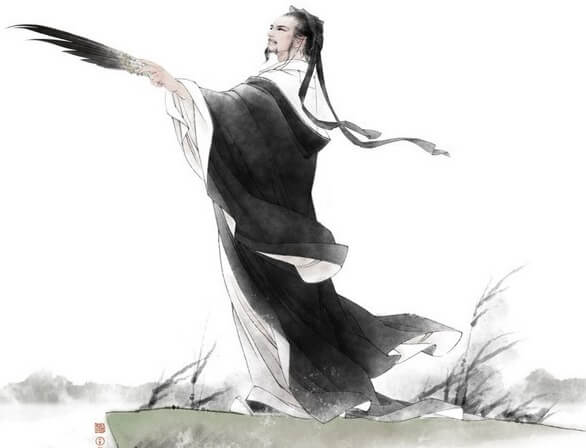In the Camp of the Sketching Brush
- Poetry of Li Shangyin
《筹笔驿》

English Translation
Monkeys and birds are still alert for your orders
And winds and clouds eager to shield your fortress.
...You were master of the brush, and a sagacious general,
But your Emperor, defeated, rode the prison-cart.
You were abler than even the greatest Zhou statesmen,
Yet less fortunate than the two Shu generals who were killed in action.
And, though at your birth-place a temple has been built to you,
You never finished singing your Song of the Holy Mountain
Seven-character-regular-verse
中文原文( Chinese )
猿鸟犹疑畏简书,风云常为护储胥。
徒令上将挥神笔,终见降王走传车。
管乐有才原不忝,关张无命欲何如?
他年锦里经祠庙,梁父吟成恨有余。
Pre: Moon and Frost
Next:Moonlit Night
- Why Chinese poems is so special?
- The most distinctive features of Chinese poetry are: concision- many poems are only four lines, and few are much longer than eight; ambiguity- number, tense and parts of speech are often undetermined, creating particularly rich interpretative possibilities; and structure- most poems follow quite strict formal patterns which have beauty in themselves as well as highlighting meaningful contrasts.
- How to read a Chinese poem?
- Like an English poem, but more so. Everything is there for a reason, so try to find that reason. Think about all the possible connotations, and be aware of the different possibilities of number and tense. Look for contrasts: within lines, between the lines of each couplet and between successive couplets. Above all, don't worry about what the poet meant- find your meaning.
Famous Chinese Poems
- Early Summer: Seeking Yu Creek After Rain
- Midnight Vigil in West Garden
- Villager's Song I
- Villager's Song II
- Villager's Song III
- The Ferry at Yiyang
- The Village Tavern
- Quatrain of Four Words: Deep Love, True Heart
- Mountain's End
- Seven Poems on Kaiyuan Era: Dancing Horses
You May Also Like